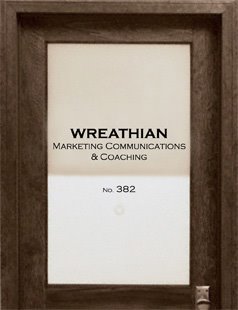
Welcome to the Wreathian web log. We will be posting all sorts of thoughts, observations, news, and articles about marketing and communications. We are pretty busy with the actual work of bootstrapping our way into existence right now, but we are doing our best to begin and maintain a living, breathing dialogue.
Our goals are...
1. Interesting and insightful. We may not change the world every day, but that certainly will not stop us from trying.
2. Easy to read. With a little practice, we may even achieve "pithy".
3. Community. Come to learn. Stay to contribute. This is an open conversation, after all.
4. Point of view. You may not like it, but preference is no obstacle for the truth. Besides, original is captivating.
Thanks, in advance, for checking us out and staying in touch.
Oh yes, and remember to sign up for an RSS, Atom, or e-mail feed!